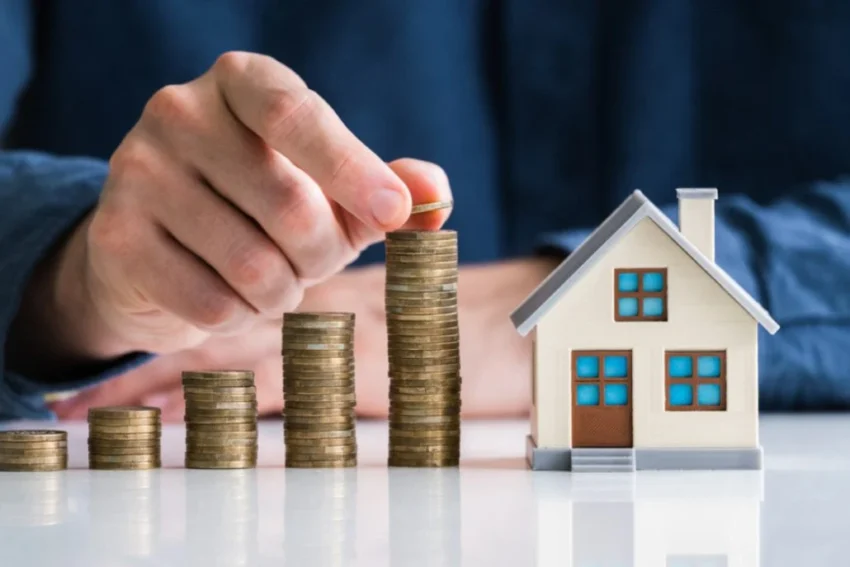hi88: Investing in real estate, specifically in houses, is one of the most reliable and rewarding ways to build long-term wealth. Many individuals turn to property investment due to its potential for both appreciation in value and steady income streams. However, to truly understand the profit of house investment, it’s essential to grasp the different ways profits are generated, the factors that influence them, and the risks involved. In this article, we will explore how house investment profits work, and how you can maximize returns from this type of investment.
What is House Investment Profit?
Profit from house investment is typically generated through two primary avenues: capital appreciation and rental income. These are the two most common ways that investors make money from owning residential properties.
- Capital Appreciation – This refers to the increase in the value of a property over time. If you purchase a home for $200,000 and its value increases to $300,000 over several years, the $100,000 difference is your capital gain. This profit is realized when you sell the property for more than your purchase price. Capital appreciation is often the main source of profit for long-term investors.
- Rental Income – Investors who purchase homes to rent them out can generate a steady stream of income from tenants. Rental income is typically used to cover mortgage payments, property taxes, insurance, and maintenance costs. Any remaining amount is profit for the investor. With the right property and location, rental income can provide consistent cash flow over time.
How to Make Profit from House Investment
There are multiple strategies that investors can employ to generate profit from house investments. Let’s take a closer look at the most common approaches.
- Buying and Holding for Capital Appreciation One of the most straightforward strategies for making a profit from house investment is by buying a property in a growing neighborhood and holding onto it for an extended period. Over time, property values tend to rise due to factors such as demand, inflation, economic growth, and improvements in infrastructure. By holding the property for several years or even decades, investors can benefit from substantial capital gains when they eventually sell.
- Example: If you buy a house in a developing area for $150,000 and hold it for 15 years, during which time property values increase due to the area’s growth, you could sell the house for $250,000, making a profit of $100,000 in capital appreciation.
- Rental Income Another way to profit from house investment is by purchasing a property to rent out. Investors who buy single-family homes or multi-family properties can earn regular rental payments from tenants. Rental income can provide a steady cash flow, and if managed well, it can cover the mortgage and other expenses while providing a profit. Additionally, rental income generally increases over time due to inflation, meaning your earnings may grow with each passing year.
-
- Example: If you purchase a house for $200,000 and rent it out for $1,500 per month, you can receive $18,000 in rental income annually. After subtracting your mortgage, taxes, and maintenance costs, the remaining amount can be your profit.
- Flipping Houses House flipping involves buying a property at a lower price, making improvements to increase its value, and selling it for a profit within a short time frame. This strategy can be profitable, but it requires a keen understanding of the real estate market, construction, and renovation costs. The key to successful house flipping is finding undervalued properties, completing strategic renovations, and selling at the right time.
-
- Example: You buy a house in need of renovation for $120,000, invest $30,000 in repairs and upgrades, and sell it for $200,000. Your profit is $50,000 (after subtracting repair costs and other expenses).
- Tax Advantages House investments also offer a variety of tax benefits, especially for rental property owners. In many countries, you can deduct certain expenses related to owning and operating a rental property, such as mortgage interest, property taxes, insurance, and repairs. Additionally, real estate investors may be able to depreciate their properties over time, which reduces taxable income and increases overall profit.
-
- Example: If you have a rental property, you can deduct the cost of property management, repairs, and mortgage interest from your rental income, lowering your overall tax burden and boosting your net profit.
Factors Affecting Profitability in House Investment
While investing in real estate can be highly profitable, there are several factors that influence the potential return on investment (ROI). Understanding these factors is crucial to maximizing profits.
- Location The location of the property is one of the most important factors influencing its profitability. Properties located in desirable neighborhoods with good schools, public amenities, and low crime rates tend to appreciate more over time and attract higher rental demand. Areas experiencing population growth, economic development, and infrastructure improvements often see property values rise faster than in stagnant or declining areas.
- Market Conditions Real estate markets can fluctuate based on various economic factors such as interest rates, inflation, and demand. A booming real estate market can lead to quick profits through appreciation, while a market downturn can limit potential returns. It’s essential to understand the broader economic environment and local market trends before making investment decisions.
- Property Condition and Management The condition of the property plays a significant role in its profitability. Well-maintained homes tend to attract better tenants and higher rental prices, whereas properties in poor condition may require more maintenance and result in lower rental income or longer vacancies. Regular upkeep, property improvements, and a well-managed rental portfolio can help boost profitability.
- Financing Costs The cost of financing a property purchase, such as mortgage interest rates, can directly impact profitability. If interest rates are low, your monthly mortgage payments will be lower, leaving more room for profit. On the other hand, high-interest rates or short-term loans may reduce your overall returns. It’s important to carefully evaluate financing options before committing to a property investment.
- Tenant Quality For rental properties, the quality of tenants plays a crucial role in profitability. Good tenants who pay rent on time, take care of the property, and stay long-term can significantly boost your rental income. On the other hand, problematic tenants who fail to pay rent, damage the property, or frequently move out can reduce your profit margins.
Risks in House Investment
While house investment can yield substantial returns, there are risks involved. It’s important to assess these risks and have contingency plans in place:
- Market Risk: Real estate markets can experience downturns, causing property values to decrease or rental demand to fall. This can lead to lower profits or even losses if you’re forced to sell during a market decline.
- Liquidity Risk: Real estate is relatively illiquid compared to other types of investments like stocks or bonds. If you need to sell quickly, it may take time to find a buyer, and you might have to accept a lower price.
- Maintenance Costs: Properties require upkeep, and unexpected repairs can eat into profits. From plumbing issues to roof repairs, ongoing maintenance can add up, especially in older properties.
- Tenant Risks: If you rent out the property, there is a risk of having unreliable tenants who cause property damage or fail to pay rent. Vacancies and tenant turnover can also reduce rental income and increase management costs.
Conclusion: Profit from House Investment
hi88 summary, House investment can be a profitable and stable way to build wealth, whether through capital appreciation, rental income, or house flipping. By understanding the various ways to generate profit and considering factors such as location, market conditions, property management, and financing costs, you can maximize your returns from real estate investment.
However, it’s important to also account for the risks involved, such as market fluctuations, maintenance costs, and tenant issues. With careful planning, research, and management, house investment can provide significant profits and contribute to long-term financial security.










